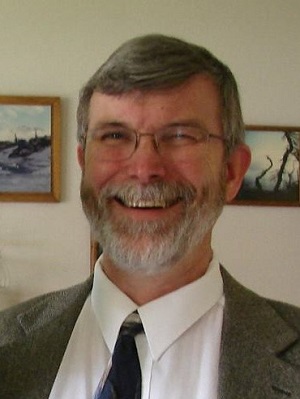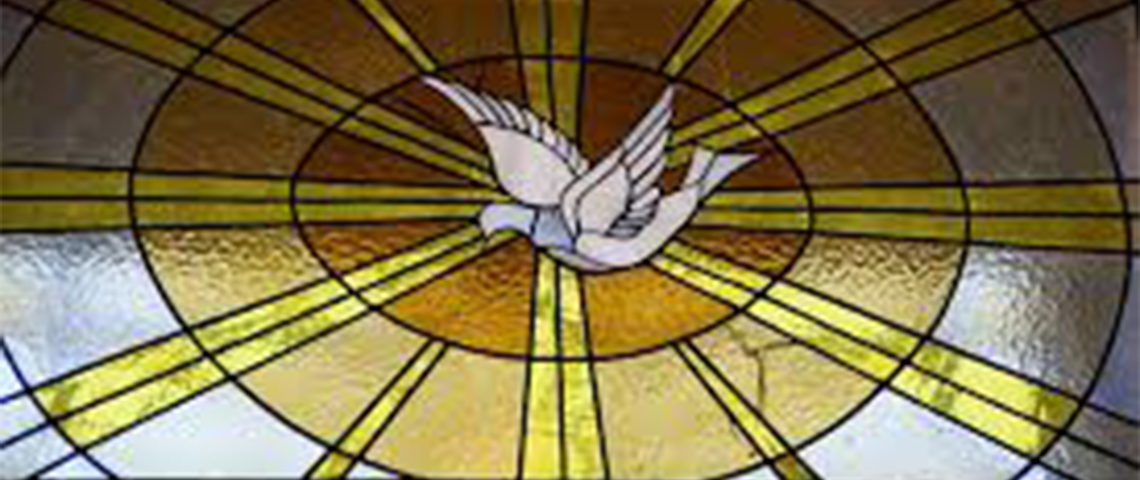
By Grant E. Christensen, Pastor, Grace Covenant Church of Bremerton
Luke 24:44-49 (nasb95) Now He said to them, “These are My words which I spoke to you while I was still with you, that all things which are written about Me in the Law of Moses and the Prophets and the Psalms must be fulfilled.” {45} Then He opened their minds to understand the Scriptures, {46} and He said to them, “Thus it is written, that the Christ would suffer and rise again from the dead the third day, {47} and that repentance for forgiveness of sins would be proclaimed in His name to all the nations, beginning from Jerusalem. {48} “You are witnesses of these things. {49} “And behold, I am sending forth the promise of My Father upon you; but you are to stay in the city until you are clothed with power from on high.” [1]
Acts 1:6-8 (nasb95) So when they had come together, they were asking Him, saying, “Lord, is it at this time You are restoring the kingdom to Israel?” {7} He said to them, “It is not for you to know times or epochs which the Father has fixed by His own authority; {8} but you will receive power when the Holy Spirit has come upon you; and you shall be My witnesses both in Jerusalem, and in all Judea and Samaria, and even to the remotest part of the earth.”
In both Luke 24:48-49 and in Acts 1:8, Jesus links the disciples’ witness with their receiving power “when the Holy Spirit has come upon” them. In Luke, after stating that they will be witnesses of His death and resurrection, Jesus commands them to wait in Jerusalem until they are “clothed with power on high.” In Acts Jesus tells His disciples that they “will receive power when the Holy Spirit has come upon” them—and as the implied result of this empowerment that they will be His witnesses “in Jerusalsm, and in all Judea and Samaria, and even to the remotest part of the earth.”
I find it more than significant that the Holy Spirit in God-breathing the Gospels and Acts has set forth a very specific timeline, which—when considered—gives much needed light to our call to be witnesses. In Luke chapter 24, I find the following precise time line set by Dr. Luke:
Luke 24:1 (nasb95) But on the first day of the week, at early dawn, they came to the tomb bringing the spices which they had prepared.
Luke 24:13 (nasb95) And behold, two of them were going that very day to a village named Emmaus, which was about seven miles from Jerusalem.
Luke 24:33 (nasb95) And they got up that very hour and returned to Jerusalem, and found gathered together the eleven and those who were with them,
Luke 24:36 (nasb95) While they were telling these things, He Himself stood in their midst and said to them, “Peace be to you.”
Hence, on the very day of the resurrection of Jesus, after His appearance and revelation to the two men in Emmaus, and after they have hurried back to Jerusalem, Jesus appeared to His disciples as they were hearing the report from the two men. Significantly, Dr. Luke tells us that Jesus “opened their minds to understand the scriptures.”
In like manner, the Apostle John also sets a precise timeline in John chapter 20:
John 20:1 (nasb95) Now on the first day of the week Mary Magdalene came early to the tomb, while it was still dark, and saw the stone already taken away from the tomb.
John 20:19-22 (nasb95) So when it was evening on that day, the first day of the week, and when the doors were shut where the disciples were, for fear of the Jews, Jesus came and stood in their midst and said to them, “Peace be with you.” {20} And when He had said this, He showed them both His hands and His side. The disciples then rejoiced when they saw the Lord. {21} So Jesus said to them again, “Peace be with you; as the Father has sent Me, I also send you.” {22}And when He had said this, He breathed on them and *said to them, “Receive the Holy Spirit
In this passage too, John emphasizes that Jesus appeared to the disciples in the evening of that first day, the very day of Jesus’ resurrection. However, where Dr. Luke had said that Jesus “opened their minds to understand the scriptures,” John says that Jesus “breathed on them and said to them, ‘Receive the Holy Spirit.’ ”
Earlier in John, Jesus had already told His disciples that He would give them the Holy Spirit, the Spirit of truth, who would guide them into all truth:
John 14:16-17 (nasb95) “I will ask the Father, and He will give you another Helper, that He may be with you forever; {17} that is the Spirit of truth, whom the world cannot receive, because it does not see Him or know Him, but you know Him because He abides with you and will be in you.
John 16:13 (nasb95) “But when He, the Spirit of truth, comes, He will guide you into all the truth; for He will not speak on His own initiative, but whatever He hears, He will speak; and He will disclose to you what is to come.
It is readily apparent, when one pieces both stories together, that Dr. Luke’s record of Jesus “opening their minds to understand the scriptures” and John’s record of Jesus breathing upon them the Holy Spirit, while saying, “Receive the Holy Spirit,” are one and the same event. The very reality of the disciples receiving the Spirit of truth has the result of opening their minds to understand the scriptures!
Furthermore, within the wider context of the Gospel of John, I find two fulfillments of promises made by Jesus in His giving them the Spirit. The first is found in Jesus’ conversation with Nicodemus in John chapter 3:
John 3:5-7 (nasb95) Jesus answered, “Truly, truly, I say to you, unless one is born of water and the Spirit he cannot enter into the kingdom of God. {6} “That which is born of the flesh is flesh, and that which is born of the Spirit is spirit. {7} “Do not be amazed that I said to you, ‘You must be born again.’
Within the context of the Gospel of John then, the moment when Jesus gave the disciples the Holy Spirit after the resurrection is the precise moment when we see them born of the Spirit!
The second promise of Jesus about the giving of the Holy Spirit is found in John chapter 7:
John 7:37-39 (nasb95) Now on the last day, the great day of the feast, Jesus stood and cried out, saying, “If anyone is thirsty, let him come to Me and drink. {38} “He who believes in Me, as the Scripture said, ‘From his innermost being will flow rivers of living water.'” {39} But this He spoke of the Spirit, whom those who believed in Him were to receive; for the Spirit was not yet given, because Jesus was not yet glorified.
Herein I find that Jesus promises the Holy Spirit to everyone who would believe in Him, but that they would only receive the Spirit after Jesus had been glorified. Within the Gospel of John, Jesus’ glorification is nothing less than His exaltation on the cross. Hence, on the first day of the week, the same day that Jesus has been resurrected from the dead, He breathed on them and said, “Receive the Holy Spirit.” In that one event the Holy Spirit took up residence within the disciples, having opened their minds to understand the scriptures, and they were born again!
Many scholars I have heard and read have stated that for John the Holy Spirit was given on the first day of the resurrection and that for Dr. Luke the Holy Spirit was given on the day of Pentecost. If this is the case, why would the Holy Spirit in God-breathing these texts give us such a precise timeline for the giving of the Spirit in John and for the Baptism of the Holy Spirit in Acts? Also, how was it that in Luke Jesus opened their minds to understand the scriptures?
I believe two errors have been made: the first error is to say that the fullness of the Holy Spirit is received when one believes; the second error is to say that the Baptism of the Spirit is a second work of grace necessary for salvation—as so many Pentecostal groups suggest. If every Christian has received the Holy Spirit and has also therefore received the empowerment of the Spirit for witness, why don’t we see present day disciples leading others to Christ in droves? What I find scripture actually teaching is that on the first day of the week the disciples were truly born of the Spirit, having received the indwelling Spirit of truth who had opened their minds to understand the scriptures. On the same occasion Jesus commanded the disciples to wait in Jerusalem until they have been clothed with power from on high for the supernaturalizing of their witness. Again in Acts 1:8 Jesus said the same thing to them!
On the day of Pentecost when the Spirit was poured out upon the gathered disciples, they begin speaking in foreign tongues so that everyone present could understand them! Furthermore, Peter—now clothed with power from on high—preached one sermon and 3,000 people “received his word and were baptized.” It’s more than significant that at the giving of the Ten Commandments—what Paul calls in 2 Corinthians chapter 3 the ministry of death—3,000 people were killed; at the giving of the Holy Spirit—what Paul calls in 2 Corinthians chapter 3 the ministry of the Spirit—3,000 people came to life. The Ten Commandments brought death; the Holy Spirit brings life!
I suspect in our time, we have become so accustomed to relying on what I call “ministry technology,” that we have neglected the empowerment of the Holy Spirit to supernaturalize our witness. If I couple this with the how much more willingness of the heavenly Father to give the Holy Spirit to those who ask, I find that the Father longs to empower our witness—longing to send us power from on high so that we too might witness in the power and might of the Holy Spirit. We have not because we ask not. What might happen if together with one voice we were to ask the Father to empower our witness by the Holy Spirit? What might happen if we relied less on all of our “ministry technology”—our techniques and programs and strategies—and more on the ministry of the Holy Spirit—who gives life! On what occasion are we disallowed from asking for the empowerment of our witness by the Holy Spirit? I pray that we would all have ears to hear!
© 2019 by Grant Christensen. “Freely you have received, freely give.” (Matthew 10:8b niv) You are free to share—copy and redistribute in any medium or format—as long as you don’t change the content, don’t use commercially without permission of the author or author’s family, and include attribution with the following Creative Commons License:
[1] New American Standard Bible: 1995 Update. La Habra, CA: The Lockman Foundation, 1995.
[Click Here] to see Grant’s previous article in this series titled, “Asking for the Holy Spirit”

